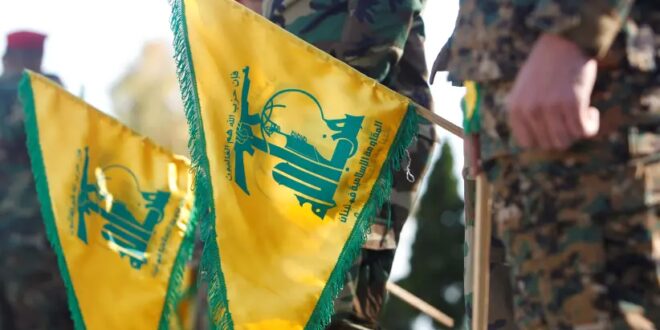Lebanon’s endless political crisis continues. It has lacked a government since prime minister Hassan Diab resigned last year after the Beirut Port explosion. Since then, the country has lurched from crisis to crisis, with Hezbollah being the main benefactor of these crises.
Lebanese President Michel Aoun has held discussions with Saad Hariri, the prime minister-designate. Hariri’s father, Rafik, was murdered by Hezbollah in 2005.
In March, there was a failure to agree on a new cabinet. Aoun wants Hariri to step aside. Hezbollah has refused suggestions that the cabinet be made up of technocrats.
“A government of technocrats that is not backed by political groups won’t save the country,” Hezbollah leader Hassan Nasrallah said in March.
In May, the crisis continued. At the time, Nasrallah was getting sick with an undisclosed illness.
According to media reports, Hariri told parliament: “The truth of what is happening is that the president of the republic tells the deputies in his message: ‘You named a prime minister. I do not want him, and I will not allow him to form a government. Please, get rid of him.’ This is an attempt to absolve the president of the republic from the accusation of obstructing the formation of the government.”
According to Arab News, former US assistant secretary of state for Middle East affairs David Schenker said in an interview with Al-Hurra TV on Friday: “President Aoun and MP Gebran Bassil, the president’s son-in-law, do not want a technocratic government that begins with reforms because that would undermine Hezbollah’s position, as well as some political ambitions of Lebanese politicians.”
Parliament Speaker Nabih Berri appears to be siding with Hezbollah. The posts in Lebanon’s government are dominated by sectarianism. Aoun is a Christian, Hariri is a Sunni and Berri is a Shi’ite.
“Experts argue the main stumbling block to the formation of a new government is still the issue of the ‘blocking third’ of portfolios, with Hariri now wanting to know the affiliation of the two Christian ministers who will enter the government when the number of its members is raised to 24, as Berri suggested,” The Arab Weekly news website reported.
Iran is interested in seeing its ally Hezbollah receive more power. Hezbollah has established contacts with Hariri and Bassil, who is the head of the Lebanese National Free Movement, Iran’s Tasnim News Agency reported.
“Hezbollah representatives told Saad Hariri that they had talked to Lebanese President Michel Aoun about the need to resolve the issue of forming a government, and that Gebran Bassil had emphasized that he would not complicate the process of forming a cabinet,” the report said. “The Lebanese nationalist leader also told Hezbollah representatives that he was positively interacting with the initiative of Parliament Speaker Nabih Berri on the issue of forming a government, and that negative signals should not be allowed to dominate the cabinet.”
Hariri now has another week to sort things out.
“The differences are not limited to these barriers, but there are major differences over ministries, especially government posts,” Tasnim reported. “The Interior Ministry, the Social Affairs Ministry, the Economy Ministry and the Justice Ministry are among the posts that are highly sensitive because they are key and because they have to deal with the important affairs of the country after the formation of the government.”
Lebanon needs a government to deal with its crises, the report said.
“Today, the crisis has become an everyday term for Lebanese citizens, a term that defines all aspects of their lives throughout the day and night: from long queues for petrol quotas to rising power outages, drug and healthcare crises, garbage dumping on the streets, restrictions on access to bank accounts, the endless surge in prices for basic goods and, of course, the ongoing political upheaval that prevents government formation,” Tasnim reported. “In such a situation, the World Bank has warned in its latest report about the collapse of the Lebanese economy and its socio-security consequence.”
 Eurasia Press & News
Eurasia Press & News




